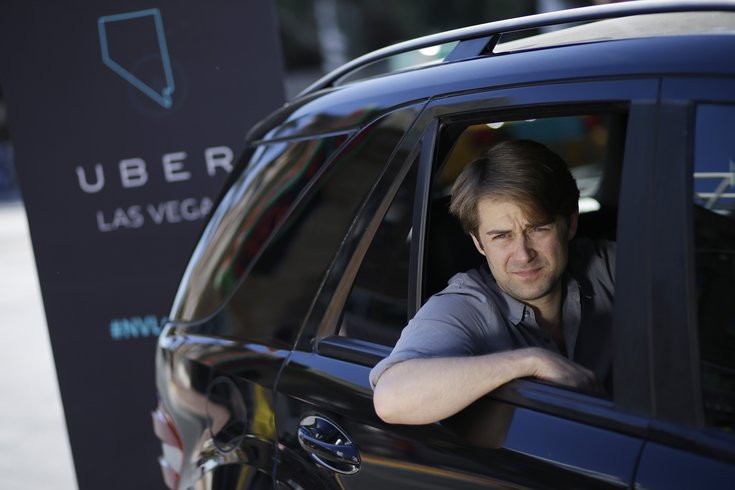
November 04, 2016
 John Locher/AP
John Locher/AP
Uber West Coast Regional Manager William Barnes sits in the back of a car during a photo shoot Friday, Oct. 24, 2014, in Las Vegas. The ridesharing company has begun operations in Nevada.
Pennsylvania Gov. Tom Wolf signed a bill Friday that formally legalizes Uber and Lyft in Philadelphia after the Pennsylvania Senate voted overwhelmingly in concurrence with its passage in the House of Representatives.
In a vote, the Senate decided 47-1 — with two members abstaining — to approve legislation that will provide a permanent regulatory framework for transportation network companies operating in Pennsylvania.
The new law will replace the two-year experimental licenses Uber and Lyft had been using to operate in Pennsylvania. They are set to expire for both companies early next year. Wolf released a statement Friday morning:
I want to thank the Legislature for working with me to finally pass a long-term solution that will allow ride-sharing companies like Uber and Lyft to operate everywhere in Pennsylvania,” Gov. Wolf said. “This bill puts an end to any question about these companies operating in our Commonwealth, especially in Philadelphia.
We want these companies welcome here in the Commonwealth, allowing them to become full partners with the cities and communities where they operate and invest, including Pittsburgh, where Uber has headquartered its advanced robotics research. This bill also protects consumers with background checks and thorough vetting for drivers, making sure we are doing all we can to keep riders safe and secure.
In Philadelphia, where rideshare companies have had a contentious relationship with the Philadelphia Parking Authority, a state appeals court recently lifted an injunction that was imposed through a lawsuit filed against the PPA by the Taxi Workers Alliance of Pennsylvania.
Wolf had previously enacted a grace period for Uber and Lyft in Philadelphia during the Democratic National Convention and SEPTA's Regional Rail crisis.
In the face of the PPA's regulatory threats, Uber and Lyft both signaled their intent to operate as usual.
Under the terms of the bill, a 1.4 percent tax on all Uber and Lyft rides would be divvied up between the School District of Philadelphia and the PPA.
“The passage of a permanent framework for ridesharing increases modern transportation options and economic opportunity across the state," Lyft spokesperson Sami Naim said in a statement Friday.
"It also ensures Philadelphia’s children and their public schools will benefit from additional funding generated from ridesharing revenue. We thank Gov. Wolf, as well supporters in the Pennsylvania State Legislature, for passing this critical legislation."